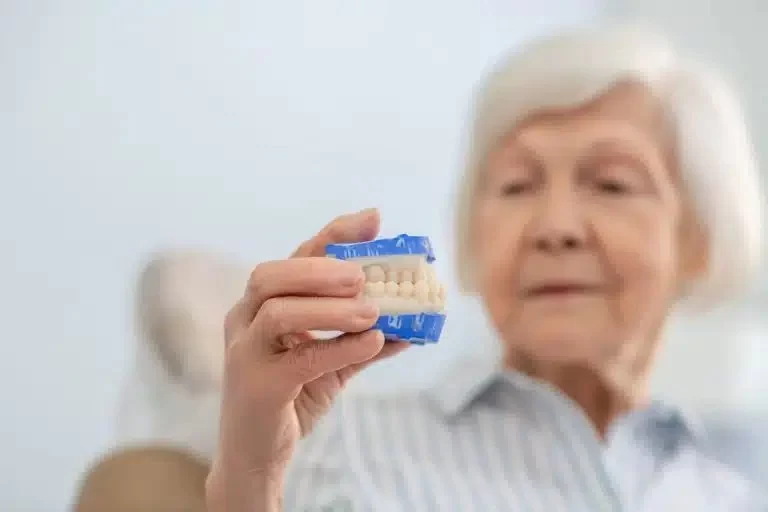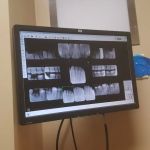
- Understanding Tooth Loss
- Causes of Tooth Loss
- Preventing Tooth Loss
- Healthy Lifestyle for Strong Teeth
- When to See a Dentist for Tooth Loss Prevention
1. Understanding Tooth Loss
Tooth loss can be a distressing experience, whether it happens due to injury, aging, or dental diseases like gum disease and decay. Understanding the factors that contribute to tooth loss and the measures that can be taken to prevent it is vital for maintaining a healthy smile and preserving your oral health. While losing teeth is often seen as an inevitable part of aging, taking proactive steps can significantly reduce the risk of tooth loss in the future.
1.1 Causes of Tooth Loss
Tooth loss can be attributed to several factors, including poor oral hygiene, genetics, and lifestyle choices. Let’s explore the primary causes:
- Poor oral hygiene: Failure to brush and floss regularly leads to plaque buildup, which can cause tooth decay and gum disease, both of which are major contributors to tooth loss.
- Gum disease (Periodontitis): Gum disease is a bacterial infection that affects the tissues supporting your teeth. Left untreated, it can cause the gums to recede, leading to tooth loosening and eventual loss.
- Cavities and tooth decay: Untreated cavities and extensive tooth decay can weaken the structure of the tooth, leading to its eventual extraction if not treated in time.
- Genetic factors: Some individuals are more genetically predisposed to gum disease or other dental conditions that increase the risk of tooth loss.
- Trauma or injury: Accidents or injuries to the mouth or teeth can cause tooth damage that may require extraction if the damage is severe.
2. Preventing Tooth Loss
While some causes of tooth loss are beyond your control, such as genetics, there are many steps you can take to protect your teeth and prevent premature loss. The key to preventing tooth loss lies in good oral hygiene practices and regular dental checkups. Here are some essential tips:
- Brush and floss regularly: The foundation of good oral hygiene is brushing your teeth at least twice a day with fluoride toothpaste and flossing once a day to remove plaque and food particles from between your teeth and along the gumline.
- Visit the dentist regularly: Regular dental checkups allow your dentist to detect early signs of tooth decay or gum disease. Early intervention can prevent tooth loss from progressing to an advanced stage.
- Protect your teeth from injury: If you play contact sports or participate in high-risk activities, wearing a mouthguard can help protect your teeth from trauma and prevent tooth loss.
- Stop smoking: Smoking is a major risk factor for gum disease, which is a leading cause of tooth loss. Quitting smoking can significantly improve your oral health and help prevent gum disease.
- Eat a balanced diet: A nutritious diet rich in calcium, vitamin D, and other essential nutrients can help strengthen your teeth and gums. Avoid excessive consumption of sugary foods and drinks, which can increase your risk of cavities and tooth decay.
3. Healthy Lifestyle for Strong Teeth
A healthy lifestyle can go a long way in preserving your teeth and overall oral health. Here are some lifestyle changes that can help keep your teeth strong and prevent tooth loss:
- Maintain a healthy weight: Research suggests that individuals who maintain a healthy weight may have a lower risk of developing gum disease, which is a key cause of tooth loss.
- Limit alcohol consumption: Excessive alcohol consumption can contribute to oral health problems, including gum disease. Moderation is key to maintaining good oral hygiene.
- Manage stress: High stress levels can contribute to teeth grinding (bruxism), which wears down enamel and increases the risk of tooth damage. Finding ways to manage stress, such as through relaxation exercises or yoga, can help protect your teeth.
4. When to See a Dentist for Tooth Loss Prevention
Preventive care is essential for keeping your teeth healthy, but regular visits to the dentist are equally important. If you experience any of the following signs, it’s crucial to consult your dentist promptly:
- Bleeding gums or swollen gums, especially after brushing or flossing.
- Loose teeth or changes in bite alignment.
- Severe tooth sensitivity or pain that doesn’t go away.
- Persistent bad breath (halitosis) despite maintaining good oral hygiene.
Your dentist can assess the health of your teeth and gums, provide professional cleanings, and recommend treatments to help prevent tooth loss. Early intervention can significantly increase the chances of saving your teeth.
If you’re concerned about tooth loss and want to learn more about preventive care or get personalized advice, visit Family Dentistry Online for the best products and services to protect your teeth and maintain optimal oral health.







 West Jordan Modern Dentistry and Orthodontics4.0 (222 review)
West Jordan Modern Dentistry and Orthodontics4.0 (222 review) Plaza Dentistry5.0 (612 review)
Plaza Dentistry5.0 (612 review) Commonwealth Dental Associates4.0 (239 review)
Commonwealth Dental Associates4.0 (239 review) West Coast Dental of South Gate3.0 (495 review)
West Coast Dental of South Gate3.0 (495 review) Wu Orthodontics | South Pasadena4.0 (48 review)
Wu Orthodontics | South Pasadena4.0 (48 review) SoCO Smiles Orthodontics4.0 (187 review)
SoCO Smiles Orthodontics4.0 (187 review) The Importance of Oral Health Education During Pregnancy for a Healthy Pregnancy
The Importance of Oral Health Education During Pregnancy for a Healthy Pregnancy Best Tips for Brushing Your Teeth Properly for Healthy Gums: Essential Techniques for Oral Health
Best Tips for Brushing Your Teeth Properly for Healthy Gums: Essential Techniques for Oral Health Why Skipping Dental Checkups Can Lead to Bigger Oral Health Problems
Why Skipping Dental Checkups Can Lead to Bigger Oral Health Problems Advantages of Porcelain Dental Restorations
Advantages of Porcelain Dental Restorations How Can Diabetes Cause Tooth and Gum Problems? Preventing and Managing Oral Health Issues
How Can Diabetes Cause Tooth and Gum Problems? Preventing and Managing Oral Health Issues Healthy Habits for Promoting Good Oral Health and Hygiene: Tips for a Healthy Smile
Healthy Habits for Promoting Good Oral Health and Hygiene: Tips for a Healthy Smile